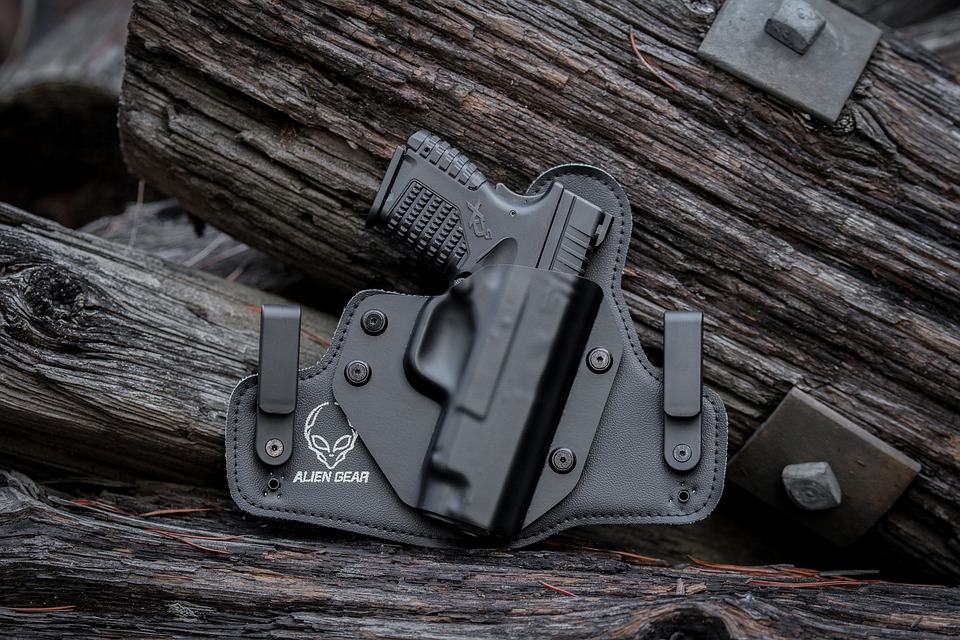
From Gun-Free Zones to Armed Society: The Impact of Concealed Carry Laws
From Gun-Free Zones to Armed Society: The Impact of Concealed Carry Laws
The debate surrounding concealed carry laws and their impact on society is a topic of immense controversy. Supporters argue that allowing individuals to carry concealed weapons leads to a safer society, while opponents fear that it may increase the risk of violence. In this article, we will explore the various arguments surrounding concealed carry laws and their potential effects on society.
Understanding Concealed Carry Laws
Concealed carry laws are regulations that determine who can carry a concealed weapon, such as a handgun, in public. These laws vary from state to state, with some states allowing individuals to carry concealed weapons without a permit, while others require a permit or license.
Proponents of concealed carry laws argue that they allow law-abiding citizens to protect themselves and others from potential threats. They believe that by arming responsible individuals, the overall crime rate can be reduced, as criminals are more likely to think twice before targeting potential victims.
Crime Rates and Deterrence
One of the key arguments in favor of concealed carry laws is the idea that an armed society is a deterred society. Proponents argue that potential criminals are less likely to commit crimes when they know that their potential victims may be armed. They believe that the risk of encountering an armed citizen acts as a deterrent and lowers crime rates.
Studies examining the relationship between concealed carry laws and crime rates show conflicting results. Some studies suggest that these laws have no significant impact on crime rates, while others indicate a potential decrease in violent crime. The complexity of the issue makes it difficult to draw definitive s.
Gun-Free Zones and Vulnerability
Gun-free zones, such as schools, government buildings, and certain public spaces, restrict the carrying of concealed weapons. These zones aim to create safe environments by minimizing the risk of firearms-related incidents. However, some argue that gun-free zones may inadvertently create vulnerability.
Opponents of gun-free zones argue that criminals are more likely to target these areas, knowing that potential victims will be unarmed and unable to defend themselves. They suggest that allowing concealed carry in these areas could deter potential attackers and protect innocent lives.
Arguments against Concealed Carry Laws
Despite the arguments in favor of concealed carry laws, opponents raise valid concerns regarding their potential consequences. Some point out that the presence of more firearms in society may escalate everyday conflicts into deadly confrontations. They fear that road rage incidents, disputes, or domestic arguments could quickly turn lethal if individuals resort to using their concealed weapons without proper judgment.
Opponents also argue that permit requirements and background checks for concealed carry may not effectively filter out potentially dangerous individuals. They worry that those with a history of violence or mental illness may gain access to firearms, posing a threat to public safety.
FAQs
Q: How do concealed carry laws vary from state to state?
A: Concealed carry laws vary widely from state to state. Some states have “shall-issue” policies, meaning they must issue a concealed carry permit as long as the applicant meets certain criteria. Other states have “may-issue” policies, where issuing permits is at the discretion of the authorities. There are also states that allow “constitutional carry,” allowing individuals to carry concealed weapons without a permit.
Q: Do concealed carry laws lead to an increase in gun violence?
A: The relationship between concealed carry laws and gun violence is complex. Some studies suggest no significant impact on overall crime rates, while others indicate potential decreases in violent crime. It is important to consider various factors when examining this issue, including the specific context and demographics of each state.
Q: Are gun-free zones effective in preventing firearms-related incidents?
A: The effectiveness of gun-free zones in preventing firearms-related incidents is a subject of debate. While these zones aim to create safe environments, opponents argue that criminals may view them as targets, knowing that potential victims are unarmed. The debate surrounding the effectiveness of gun-free zones continues.
Q: Are background checks sufficient in ensuring responsible concealed carry permit holders?
A: Background checks are an essential part of the concealed carry permit process. However, opponents argue that they may not effectively filter out potentially dangerous individuals, especially those with a history of violence or mental illness. Regular assessment and monitoring of permit holders could be important to ensure public safety.
Conclusion
The impact of concealed carry laws on society is a complex issue that elicits strong opinions on both sides. While proponents argue that allowing responsible citizens to carry concealed weapons leads to a safer society, opponents raise concerns about an escalation of violence and inadequate screening of permit applicants. As the debate continues, the need for comprehensive research and analysis becomes increasingly crucial in making informed decisions regarding concealed carry laws.
Published in Firearms

Responses